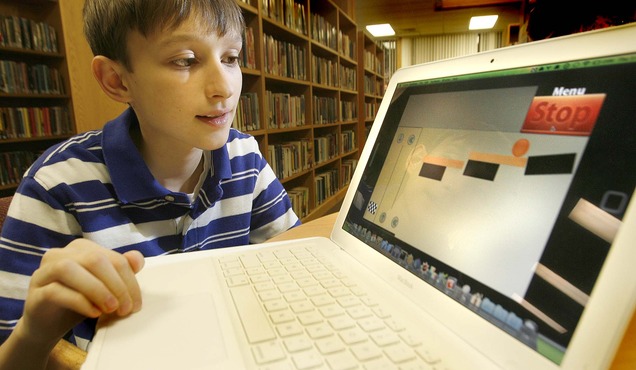Do you know where your roses really come from?
This short 2008 Frontline documentary exposes some pretty heinous human rights abuses in Ecuador’s flower industry.
Try googling “fair-trade flowers” for your bouquet this year.
Do you know where your roses really come from?
This short 2008 Frontline documentary exposes some pretty heinous human rights abuses in Ecuador’s flower industry.
Try googling “fair-trade flowers” for your bouquet this year.
Japan has a rapidly aging population, but not enough home care workers to help elderly folks with daily tasks. So Japanese engineers, true to form, began building robotic home care workers.
Only problem is… old folks don’t want to be cared for by robots. It’s… kind of creepy. While cute animal-themed robots are selling reasonably well, the creepy humanoid models are being put on the shelf. (Until they’re reactivated in the Great Robot Wars begin in 2033, of course.)
Now the helper robot industry is shifting focus from fake people to smart furniture – like a wheelchair that can transform itself into a bed.
Technology has always been blamed for eliminating jobs – why pay a person to do what a machine can do faster, better, and cheaper? But Japan’s situation is a little different. It’s not eliminating jobs for willing workers; it’s creating workers to fill necessary jobs.
Hmm… wonder what kind of career track can an entry-level home healthcare worker can look forward to?
How many independently-owned businesses are there in your city?
The Indie City Index looked at all the metropolitan areas in the U.S. to come up with a rank of which areas are great places to put a strip mall full of chain stores, and which places would rather support a family business.
Read about the study and about the importance of strong local economies here.
Have you seen any “Buy Local” signs around your town? Well they’re all over the place, and it turns out they actually work. In places with “buy local” campaigns, residents spend more money at locally-owned stores.
When you spend $1 at a corporate chain, only $0.15 of that money stays in your town. But when you spend that same $1 at a local store, $0.45 stays local. That’s a pretty big difference when you consider all the financial troubles local economies are facing these days.
The thing about an economy is that every financial transaction is somehow connected to every other financial transaction. And all those financial transactions are connected to the economic, political, and social health of an entire nation, which is connected to the rest of the world.
Something worth thinking about the next time you’re itching to spend a dollar.
International mini-market chain 7-11 is greening up its act in 100 new eco-friendly stores in Japan.
These stores, which feature wind power and LED lights, cost up to 30% more than a traditional stores. But Sevs and other chain markets like it expect that the cost of “greening” buildings will go down as demand rises.
That would be pretty cool, huh?

(photo credit: Яick Harris)
No, not like that. Like this:

A Dutch company called OAT has invented shoes made of… oats.
Instead of living in a garbage dump (or the Great Pacific Garbage Patch) for the rest of eternity after you’ve worn them out, these kicks will break down like any other normal organic substance.
And then – here comes the good part – the seeds that have been hiding inside of the shoes all along will come to life and grow trees! Shoe trees.
Do you already do something clever with your old sneakers? Plant flowers in them? Use them to insulate your attic? Save them for special shoe-throwing occasions?
Thanks for the tip, GOOD.
According to this surprising breakdown of the costs of opening a high-end restaurant in San Francisco, you could easily drop $2,697,000 before your first customer even walks in the door!

credit: cyclonebill
Andrew Ross Sorkin did the homework none of us wanted to do, and came up with an estimate of how much an evening in Davos will cost if you’re lucky enough to be invited to the WEF this year.
Some highlights:
And still: “You always feel like you are in the wrong place in Davos, like there is some better meeting going on somewhere in one of the hotels that you really ought to be at. Like the real Davos is happening in secret somewhere.“
So, just wondering… what do you do if you can’t afford any of that?
As Chief Operating Officer of Facebook, Sheryl Sandberg knows a few things about succeeding in a male-dominated industry. (Anyone seen the genius-male to lame-female ratio in The Social Network? Hmm?)
But in this awesome TED Talk, Sheryl gives us reason to believe that women can choose to sit at the desks in the corner offices if they just remember three things.

(Photo by Paul Fraughton | The Salt Lake Tribune)
Heard of a little app called Bubble Ball? Well, if you’re Robert Nay, you created it. Between gym class and dinner.
4,000 lines of code and 4 million downloads later, Bubble Ball has become the #1 free app on the iTunes store. Since the app is free, 14-year-old Mr. Nay is still just a relatively normal (if hyperintelligent) kid.
Way to go, dude!

credit: _Fidelio_
(Is this some sort of sign from Zeus that our crazy American economy is chugging back to life?)